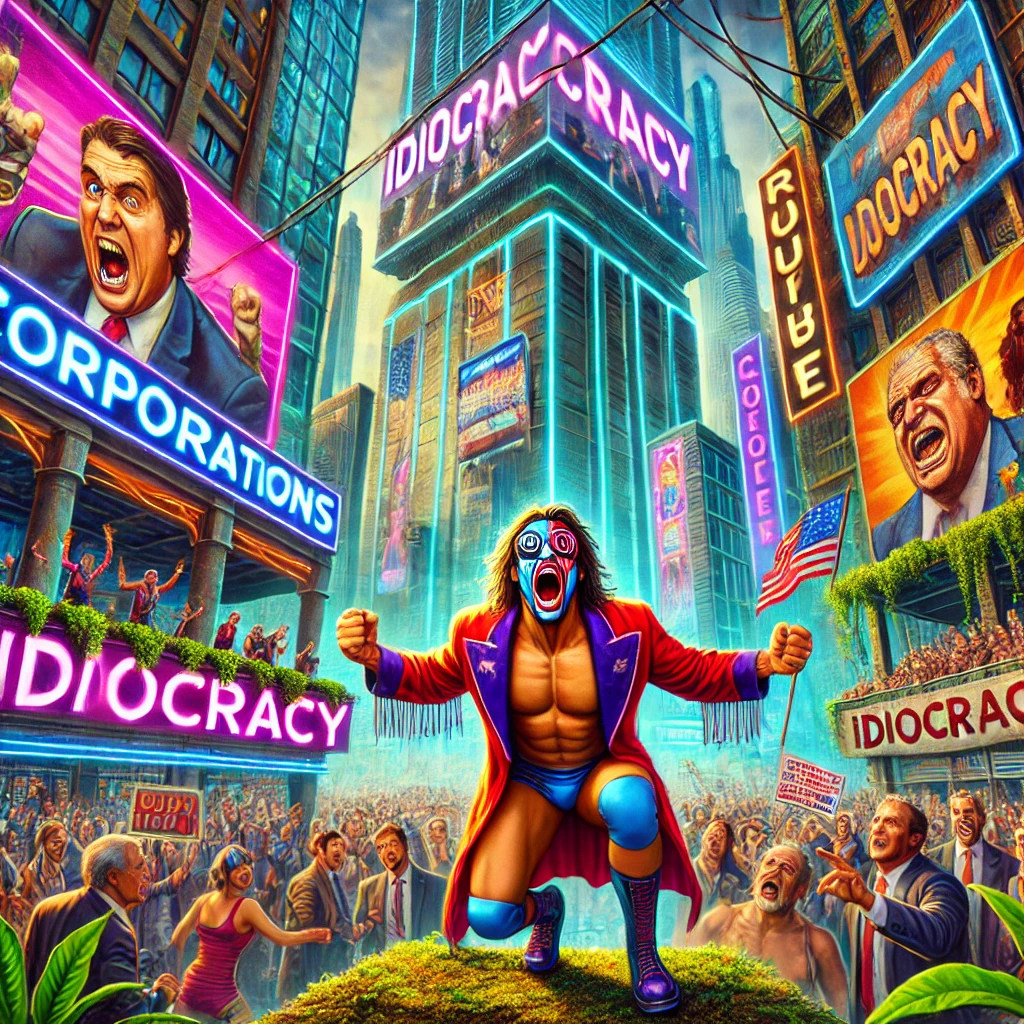Idiocracy, directed by Mike Judge, is a satirical comedy depicting a dystopian future where society has crumbled under the weight of declining critical thinking, education, and foresight. When I asked AI to draw parallels between the film and the current state of the U.S., it revealed some surprisingly unsettling similarities.
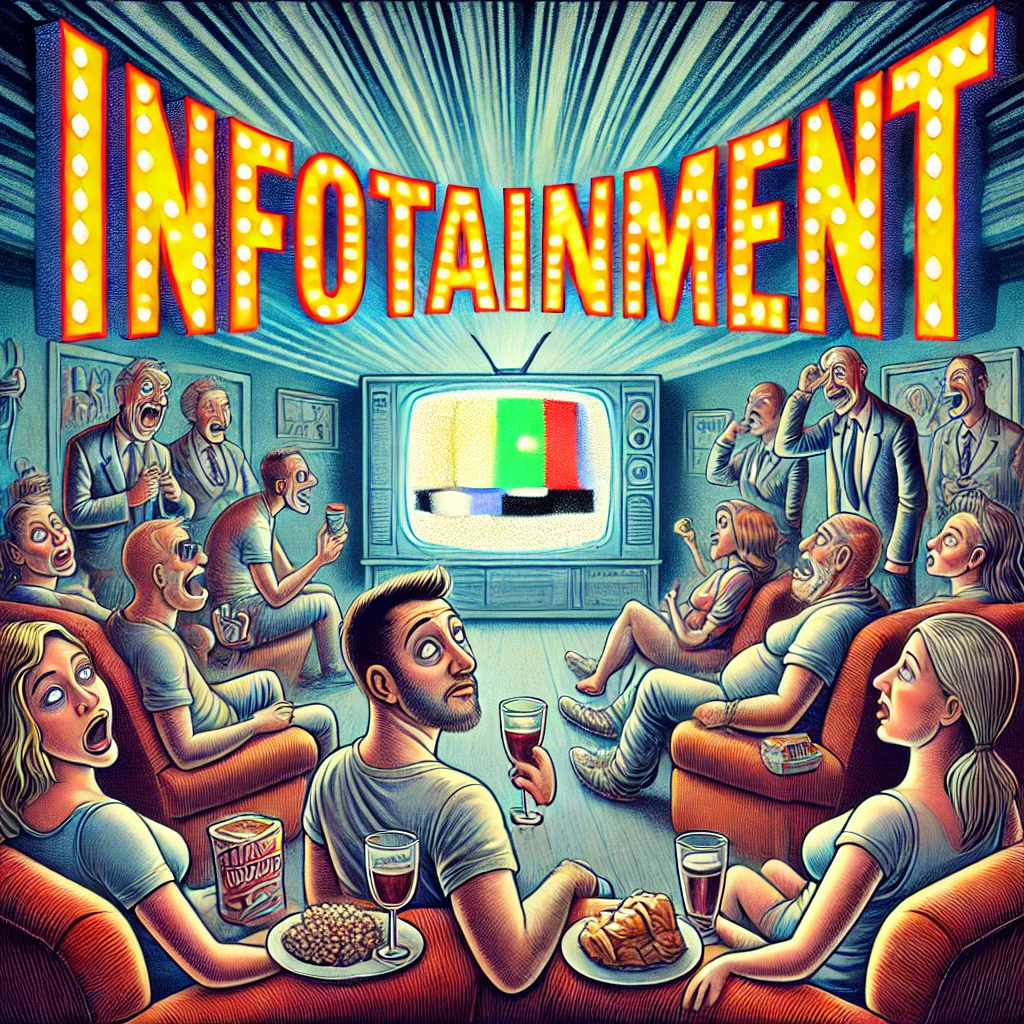
Theme 1: Decline in Critical Thinking and Education
- In Idiocracy: Society is portrayed as intellectually stagnant, with individuals relying on simplistic slogans and entertainment-driven decision-making rather than informed reasoning.
- In U.S. Politics: There are concerns about the erosion of informed political discourse, with social media often amplifying simplistic narratives or misinformation. Polarization often leaves little room for nuanced debates, and “hot takes” frequently replace thoughtful policy discussions.
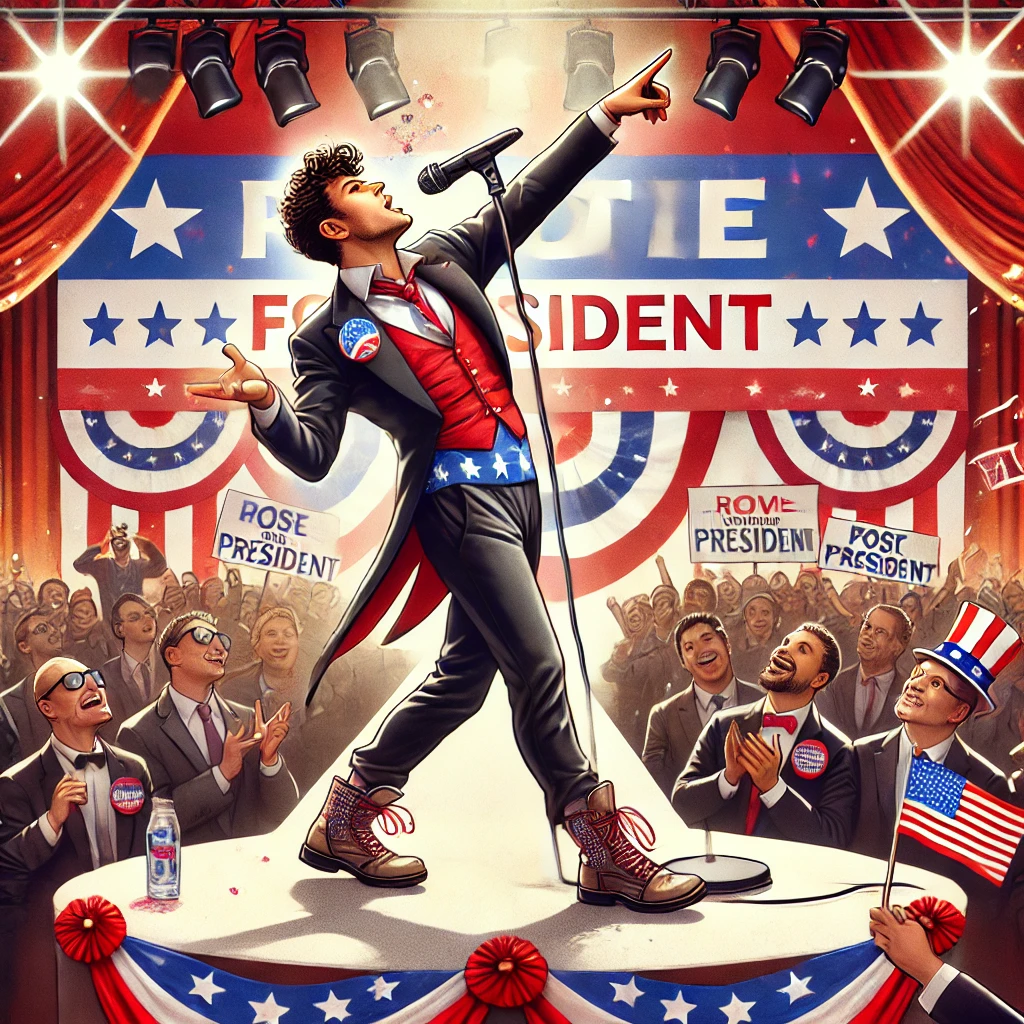
Theme 2: Populism and Appeal to the Lowest Common Denominator
- In Idiocracy: President Dwayne Elizondo Mountain Dew Herbert Camacho is a former wrestler and reality TV star who relies on spectacle and theatrics to govern, reflecting a prioritization of entertainment over competence.
- In U.S. Politics: The rise of politicians with entertainment backgrounds or populist appeal has blurred the line between governance and performance. Charismatic showmanship often takes precedence over substantive policy-making, echoing the movie’s critique.

Theme 3: Corporatization and Consumer Culture
- In Idiocracy: Corporations dominate society, and branding infiltrates every aspect of life, from healthcare to governance. The government is intertwined with corporate interests, leading to absurd situations like crops being watered with a sports drink because of its marketing slogan.
- In U.S. Politics: There are ongoing debates about the influence of corporations on policy, particularly regarding campaign financing and lobbying. Environmental policies, healthcare reforms, and even education systems often reflect corporate interests, sometimes to the detriment of public welfare.
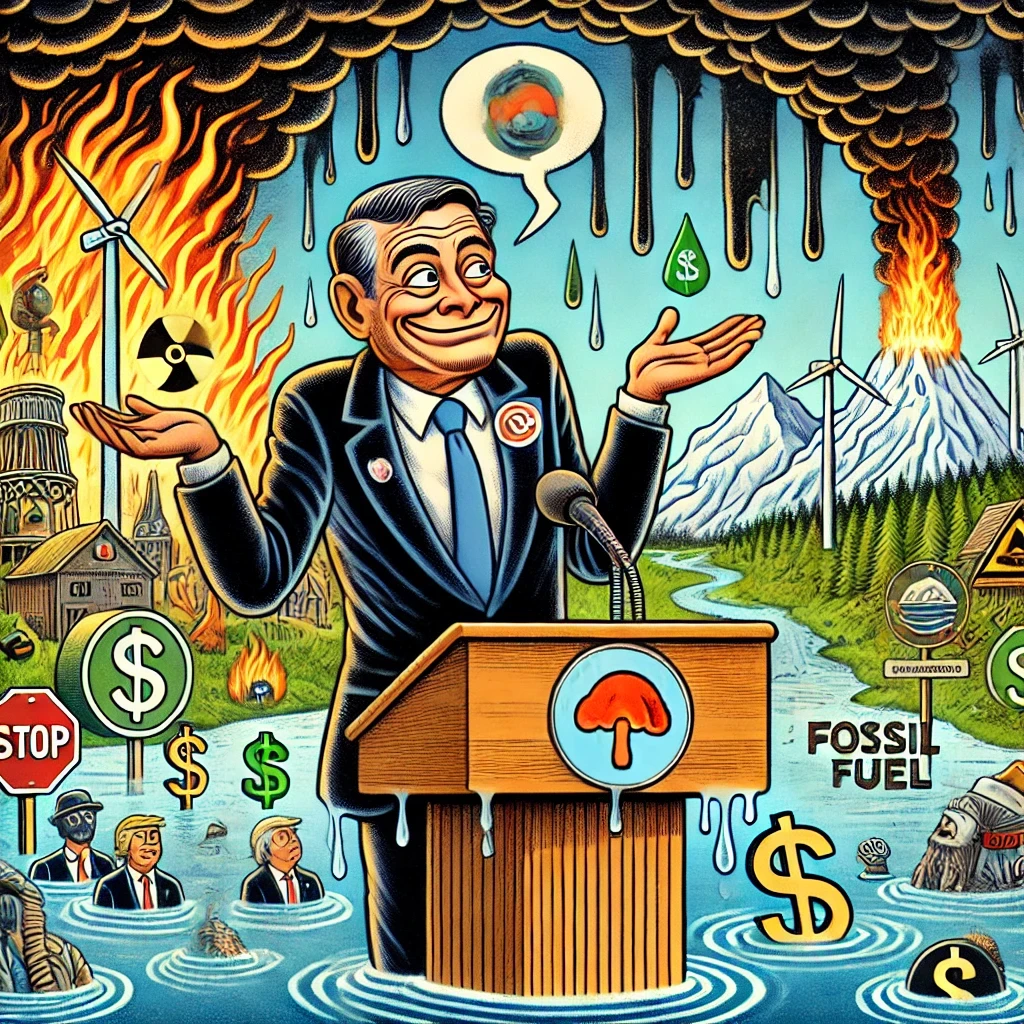
Theme 4: Neglect of Science and Expertise
- In Idiocracy: Expertise and science are devalued, with absurd solutions like irrigating crops with “Brawndo” leading to predictable disasters.
- In U.S. Politics: While the U.S. has a strong scientific community, political debates sometimes downplay or politicize scientific consensus, especially on issues like climate change, public health, and technology regulation.
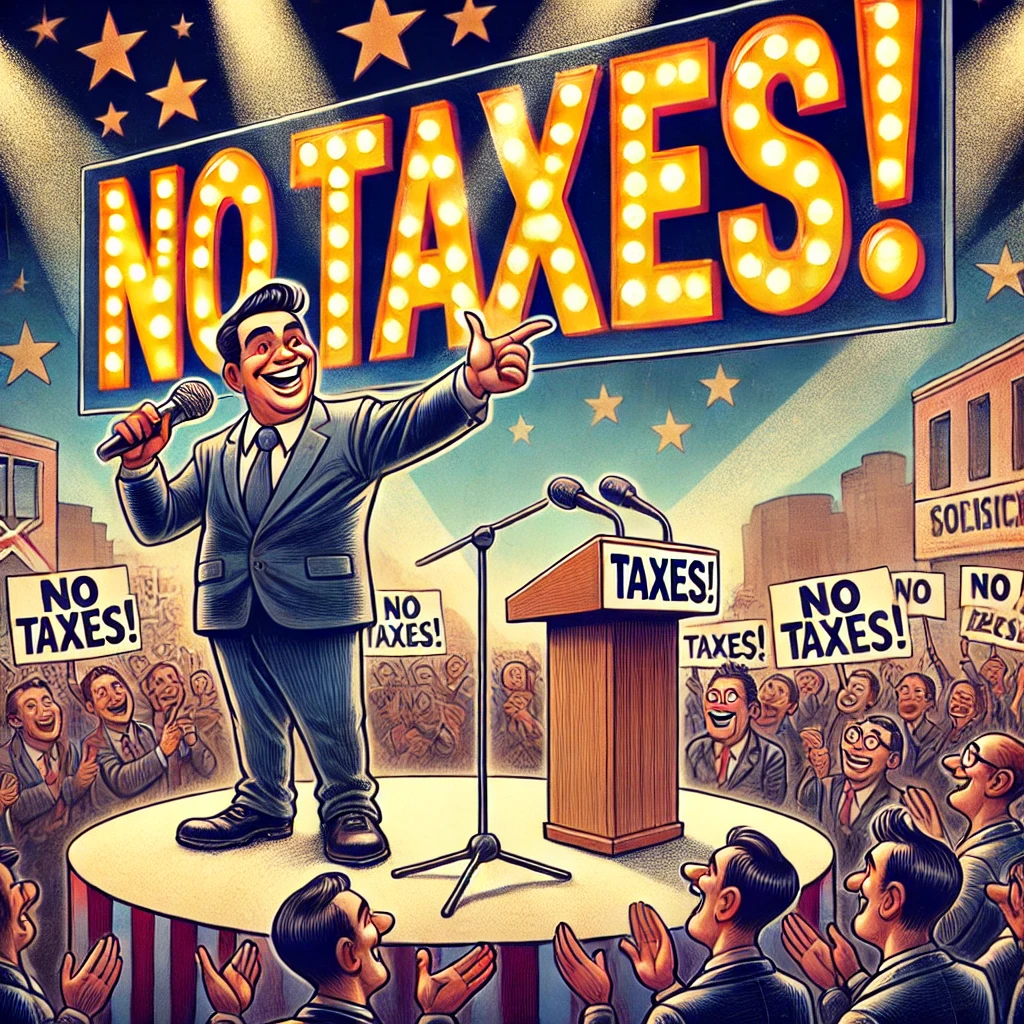
Theme 5: Short-Term Thinking
- In Idiocracy: Society prioritizes immediate gratification over long-term planning, leading to widespread dysfunction.
- In U.S. Politics: There is often criticism that policymakers focus on short-term gains, such as winning the next election or pleasing donors, rather than addressing systemic issues like climate change, infrastructure decay, or healthcare reform.
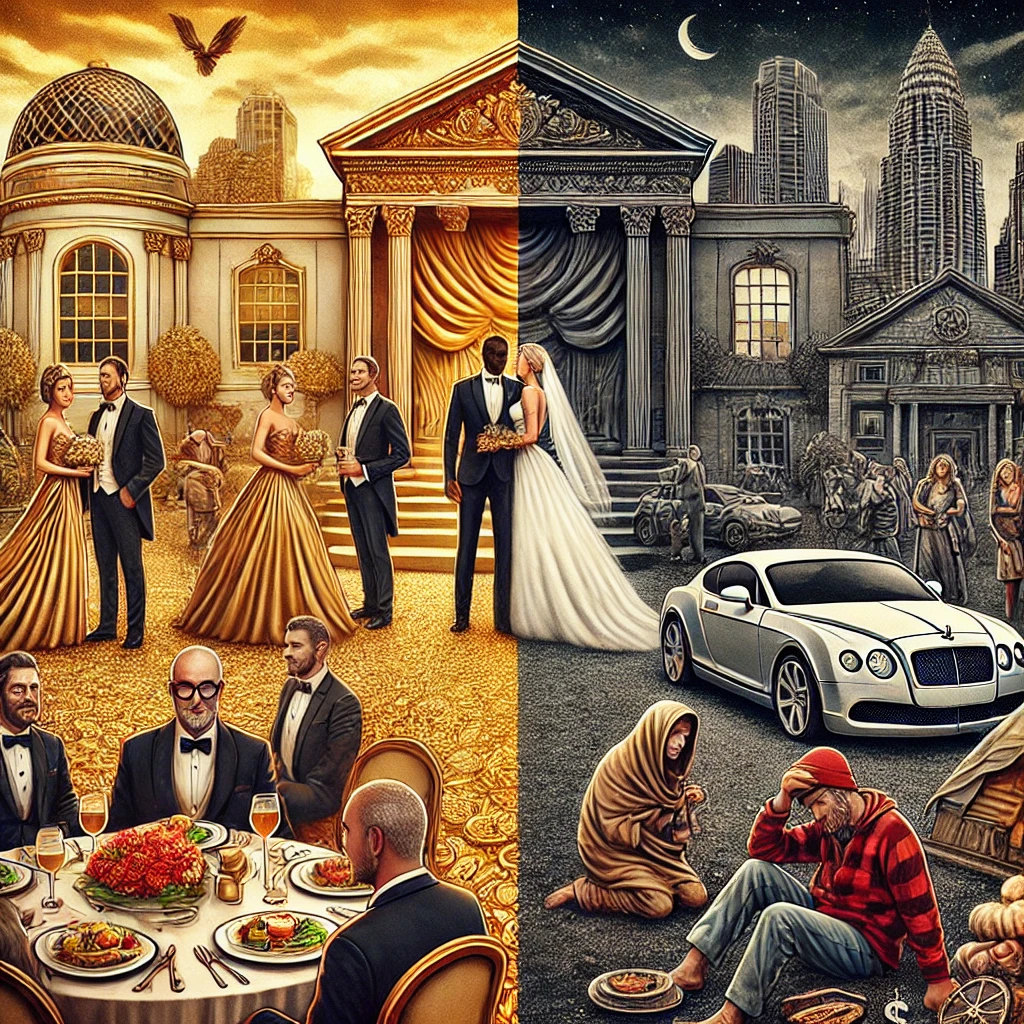
Theme 6: Social Decay and Inequality
- In Idiocracy: The movie portrays a vast disparity between the “smart” and “dumb,” with the educated minority retreating from societal engagement, accelerating the downward spiral.
- In U.S. Politics: Economic inequality and political disenfranchisement are pressing concerns. The gap between socioeconomic classes and the growing mistrust in institutions reflect some parallels to the movie’s exaggerated world.
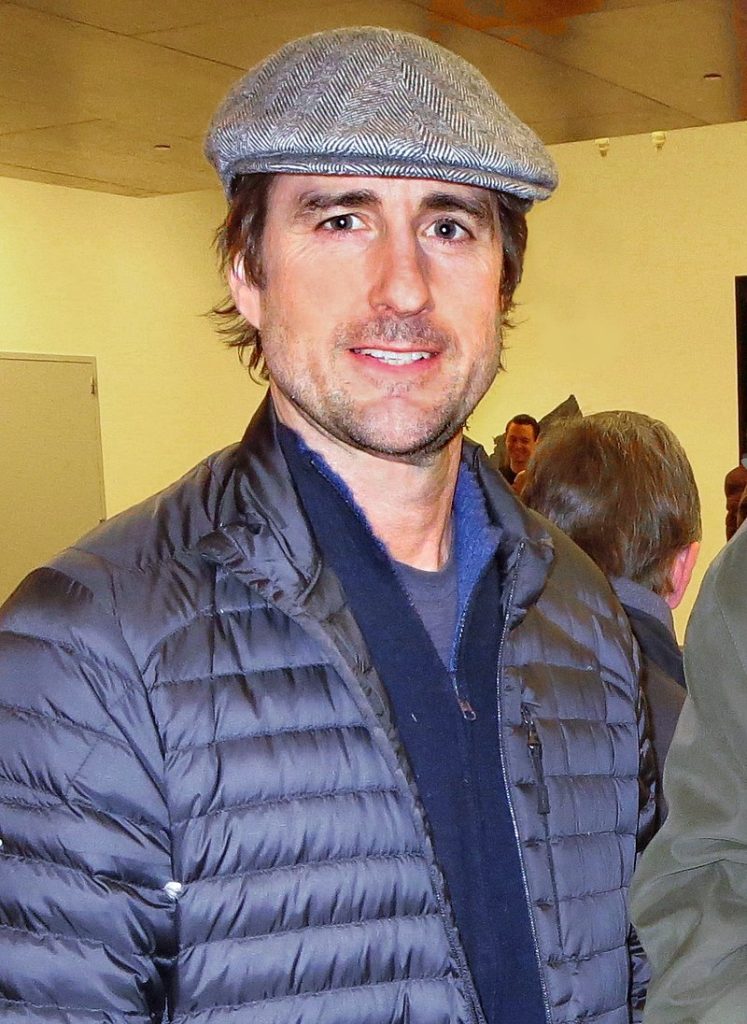
Hope and Resilience
- In Idiocracy: Despite the dystopia, the protagonist, Joe Bauers, manages to improve the situation, showing that even a small effort to think critically and act responsibly can have an impact.
- In U.S. Politics: Grassroots movements, increased voter engagement, and activism suggest that people can effect meaningful change, even in challenging times.
While Idiocracy is a satire and exaggerates for comedic effect, its core themes resonate with real-world issues in U.S. politics. It serves as both a cautionary tale and a humorous mirror for societal challenges.

